Business
Does Auto Insurance Covered Rental Car Accident?

Insurance Covered Rental Car: Renting a car provides convenient transportation for trips and vacations. But accidents can happen anytime, even in rental cars. So does your personal auto insurance follow you into the driver’s seat of a rental vehicle? Understanding how insurance works for rental cars can protect you from major liability risks.
Standard Personal Auto Policies and Rental Cars
Most personal auto insurance policies provide some degree of coverage for rental car accidents and damages. But the exact protections depend on the specific coverages you purchase:
- Liability insurance – Covers injury and property damage to others when an insured driver causes an accident. Extends to rental cars in most cases.
- Collision – Pays for rental car damage from an accident you cause. Often excluded or limited for rentals.
- Comprehensive – Provides coverage for rental car theft or damage from floods, storms, vandalism, etc. Usually excluded for rentals.
- Uninsured motorist – Protects you if a rental car accident is caused by an uninsured driver. Transfers to rentals.
- Medical payments – Covers medical expenses for insured drivers/passengers. Applies in a rental car.
When Rental Car Damage Isn’t Covered by Personal Auto Insurance
While liability insurance commonly carries over to rental cars, other coverages may not. Collision and comprehensive have significant limitations for rental vehicles:
- May only cover rentals for a certain number of days, often less than a typical rental period.
- Don’t apply if a rental is used in prohibited ways, like off-road driving.
- Typically exclude luxury, specialty, and exotic rental car models.
- May not cover international rentals.
- Can exclude rentals from certain agencies.
- May require paying an additional premium for rental coverage.
Always check your policy’s rental car provisions to avoid gaps in insurance protection.
When Rental Companies Require Additional Insurance
Insurance Covered Rental Car: Rental car companies almost universally push extra insurance products, claiming your auto policy won’t be enough. While personal insurance does provide some coverage, additional policies can fill gaps:
- Collision Damage Waiver (CDW) – Covers damage to the rental car you cause in an accident. Reduces your financial liability to the rental agency.
- Supplemental Liability Protection (SLP) – Provides additional liability coverage beyond your policy’s limits for injury and damages caused in a rental car accident.
- Personal Effects Coverage – Protects items left in a rental car if they are lost or stolen.
Evaluate your personal policy’s rental provisions when deciding whether to purchase extra coverage from the rental company.
Credit Cards with Rental Car Insurance Benefits
Many credit cards provide free rental car insurance as a cardholder benefit. These policies typically include:
- Collision/loss damage waiver – Covers rental car damage from accidents
- Liability protection – Provides supplemental liability beyond your auto policy limits
- Personal property coverage – Reimburses stolen or damaged items
However, credit card coverage often has limitations, like excluding exotic or luxury rentals. And you may need to decline the rental company’s CDW and SLP for the card’s benefits to apply. Carefully review card policy terms before relying on its protections.
When Rental Companies Waive Insurance Requirements
Rental car companies sometimes waive the need for additional insurance. This may occur if you:
- Purchase rental car coverage as an add-on to your personal auto policy
- Have auto insurance through certain companies the rental agency has agreements with
- Are a member of organizations like AAA that offer rental car coverage
- Have elite frequent renter status with a rental company’s loyalty program
But don’t assume you automatically qualify for a waiver – always verify the rental agency’s specific requirements.

International Rental Car Insurance Considerations
Insurance Covered Rental Car: Renting a car abroad brings additional concerns regarding insurance coverage. Personal auto policies often exclude international rentals entirely or limit protections. Consider purchasing an international rental car policy for trips outside the U.S. and Canada.
Also beware required insurance laws in some countries that override credit card and personal policy benefits. Many countries require purchasing liability and collision coverage through rental companies or third-party insurers.
The Costs of Damaging a Rental Car
Causing damage to a rental car can lead to thousands of dollars in repair costs plus diminished value claims if you don’t have adequate insurance. Rental companies will charge your credit card for repair expenses and loss of use while the vehicle is out of service.
You are responsible for paying your rental car deductible and any damages exceeding your coverage limits. Having a personal umbrella liability policy can provide an additional layer of protection in serious accidents causing injury or major property damage.
Avoiding Rental Car Insurance Pitfalls
These tips can help avoid coverage gaps and out-of-pocket costs when renting a car:
- Review your personal policy’s rental car coverage, limitations, and exclusions.
- Consider buying rental car add-on coverage from your insurer if your policy has gaps.
- Research your credit card’s rental car protections before declining extra insurance.
- Don’t assume you can waive rental company insurance – verify qualification requirements.
- For international trips, purchase specialized rental coverage for your destination.
- Take photos documenting a rental car’s condition at pickup and return to limit damage claims.
What To Do If You’re in a Rental Car Accident
If you are in an accident while driving a rental car, be sure to:
- Get medical assistance if anyone is injured.
- Report the accident to police to obtain an official report.
- Exchange insurance and contact information with other involved drivers.
- Take photos documenting damage and the accident scene.
- Contact the rental agency immediately after the accident.
- Inform your insurance company about the accident as soon as possible.
Cooperating fully with authorities, the rental company, and your insurer is crucial to ensure proper liability determination and smooth claims processing.
How Rental Car Accidents Affect Your Insurance
Being involved in an at-fault accident while driving a rental car can impact your personal auto insurance. Typical consequences include:
- Premium increase at renewal – Accidents raise overall risk, boosting rates.
- Loss of claims-free discounts – Accident-free driving discounts disappear after a crash.
- Higher deductibles – Deductibles may increase, especially for drivers with multiple accidents.
- Non-renewal – Insurers can decline to renew policies of higher-risk drivers.
- Insurer change – Your current company may drop you, forcing you to seek coverage elsewhere.
These effects demonstrate the importance of driving safely and carrying adequate insurance even when behind the wheel of a rental car.
When Rental Agencies Seek Damages From Renters
Rental car companies can pursue customers for damages beyond any insurance coverage. This may occur if you:
- Cause damage excluded by your insurance and credit card policies.
- Violate the rental agreement, nullifying coverages.
- Reject all optional rental agency insurance products.
- Have inadequate coverage limits for the amount of damage sustained.
In these situations, rental agencies can charge your card, send you to collections, or even file civil lawsuits to recoup their losses from accidents.
How Rental Car Damage Claims Affect Your Financial Standing
Being held liable for substantial rental car damage costs can significantly impact your finances:
- Out-of-pocket repairs can drain your savings and cash reserves.
- Large claims send your credit card balances soaring, increasing interest costs.
- Collections for unpaid balances damage your credit score.
- Garnished wages from legal judgments reduce your monthly income.
- Legal and claims-related expenses add additional financial burdens.
Avoiding gaps in insurance protection is key to minimizing potential liabilities when renting and driving a car.
In Review – Does My Auto Insurance Cover Rental Cars?
Standard auto insurance policies often provide liability protection for rental cars automatically. But collision, comprehensive, and other coverages may be limited or excluded entirely for rentals.
Supplemental insurance from rental agencies, credit cards, or specialized insurers can fill gaps and reduce potential liability from accidents. But consumers must review policy terms closely to verify what is actually covered and what isn’t.
Exercising diligence when renting, inspecting cars thoroughly, and driving carefully are also essential to avoiding insurance surprises and out-of-pocket costs resulting from rental car mishaps.
Business
Citi Government Travel Card: Everything You Must Understand

Citi Government Travel Card: The Citi Government Travel Card is an essential payment and expense management solution for U.S. government employees. This card simplifies travel payments and streamlines the reconciliation process. Here is a comprehensive guide to everything you need to know about the Citi Government Travel Card program.
What is the Citi Government Travel Card?
The Citi Government Travel Card is a charge card issued by Citibank to U.S. government employees for official travel and travel-related expenses. It provides a more efficient way for government travelers to pay for expenses like hotels, transportation, meals and incidentals.
The card is sponsored by the U.S. General Services Administration (GSA) as part of the GSA SmartPay program. Citibank is the issuing bank for the travel card. There are over 3 million Citi Government Travel Card accounts for U.S. government employees and military personnel.
Key Benefits of the Citi Government Travel Card
Here are some of the main benefits of using the Citi Government Travel Card:
- Streamlines travel expense management – Charges are billed directly to the government. Employees don’t have to pay expenses out of pocket.
- Enhances convenience – Widely accepted by merchants, works similar to a personal credit card.
- Provides purchasing power – Higher credit limits than personal cards, ideal for booking travel.
- Increases security – Provides transparency into government travel spend compared to cash or personal cards.
- Improves savings – Agencies can take advantage of rebates by negotiating with Citibank.
- Integrates tracking – Charges flow directly into travel management systems.
Types of Citi Government Travel Card Accounts
There are three main types of Citi Government Travel Card accounts:
Individually Billed Accounts (IBA)
Individually billed accounts are the most common travel card account. The employee is responsible for paying the bill. IBA accounts are issued in the employee’s name and they are liable for making on-time payments.
Centrally Billed Accounts (CBA)
With centrally billed accounts, the agency or organizational unit pays the bill directly. CBA accounts are typically used for group or site-specific travel where individuals wouldn’t pay their own expenses.
Restricted Accounts
Restricted accounts limit use to specific merchant categories or dollar amounts. They provide agencies with extra control over travel spend. Restrictions help enforce travel policies and prevent misuse.

How to Apply for a Citi Government Travel Card
Applying for a Citi Government Travel Card involves these steps:
- Check that you are eligible – You must be a U.S. government employee traveling on official business.
- Obtain application forms – Contact your agency’s travel card program coordinator.
- Complete application – Fill out the forms with all required personal and employment information.
- Provide signatures – Both the employee and approving official need to sign.
- Submit application – Send completed forms to your agency’s program coordinator.
- Wait for approval – Citibank will review the application and verify eligibility.
- Activate card – Once approved, activate your card when you receive it.
- Review terms – Read all policies, procedures, and cardholder agreement terms.
The card should arrive within 7-10 business days once you are approved. Then you’ll need to activate it and review all the applicable rules before making any charges.
How the Citi Government Travel Card Works
Here is an overview of how to use the Citi Government Travel Card:
Making Purchases
You can use the card to pay for any authorized travel expenses such as airfare, lodging, rental cars, meals, and incidental purchases like baggage fees. The card works similar to a normal credit card via chip, swipe, or contactless payments.
Getting Reimbursed
For individually billed accounts, you will need to submit expenses on a travel voucher to your agency. Once approved, you will be reimbursed. The reimbursement should be used to pay your travel card bill.
Paying Your Bill
Citi provides online and mobile access to view statements and make payments. For IBAs, you are responsible for paying the balance each month. Payments are typically due within 30 days of the statement closing date.
Reporting Lost or Stolen Cards
If your card is lost or stolen, report it immediately to Citibank and your agency’s program coordinator. You can request an emergency replacement card in 2 business days or less.
Account Verification and Security
Citibank uses chip card technology, 3D Secure, and CVV codes to verify transactions. Be sure to check charges frequently in your online account and report any unauthorized activity promptly.
Prohibited Uses of the Citi Government Travel Card
There are restrictions on how you can use the Citi Government Travel Card. Prohibited transactions include:
- Personal purchases
- Family expenses
- Cash advances
- Gift cards
- Fines or penalties
- Insurance policies
- Anything not authorized under travel regulations
Personal and unauthorized use can result in disciplinary action from your agency or even criminal charges in severe cases.
Costs and Fees of the Citi Government Travel Card
There are no fees directly charged to the employee government travel cardholder. However, agencies can incur program costs. Common agency fees include:
- Setup fees – For establishing new card programs
- Account fees – Flat monthly fee per travel card account
- Transaction fees – Per transaction processing fee
- Late fees – Charged if account reconciliation is delayed
Citibank also provides rebates to the agency based on sales volume. Rebates can often offset program fees and provide savings.
Is the Citi Government Travel Card Mandatory?
Use of the Citi Government Travel Card is mandatory across most federal agencies and military branches. There are regulations requiring the use of government issued travel cards.
The Government Charge Card Abuse Prevention Act mandates use of travel cards on official business. The Federal Travel Regulation also requires card use. Agencies may stipulate some exceptions if an employee cannot qualify for a card.
Refusing to apply for or use a government travel card can result in disciplinary action per your agency’s policies. Most agencies strongly enforce mandatory card use.
How to Use the Citi Government Travel Card Responsibly
To properly manage your Citi Government Travel Card, be sure to:
- Read and understand all policies and procedures for your agency’s card program.
- Only make authorized purchases related to official travel.
- Review charges frequently and report any unauthorized activity.
- Submit expenses and get reimbursed promptly.
- Pay the balance in full each billing cycle.
- Notify your agency and Citibank immediately if your card is lost or stolen.
- Do not use for personal expenses or to withdraw cash.
Responsible use includes staying compliant with all regulations and ensuring the card is used only for approved purchases.
What Happens If You Misuse the Card?
Intentional misuse of the Citi Government Travel Card can have serious consequences. Potential penalties include:
- Revoking travel card privileges
- Disciplinary action from your agency
- Account delinquency reported to credit bureaus
Business
11 Best Rewards Credit Cards in January 2024 in USA

Best Rewards Credit Cards: Rewards credit cards allow cardholders to earn points, miles, or cash back on purchases. With so many options, it can be difficult to identify the top rewards cards available today. Based on points earning rates, redemption values, and benefits, here are the 16 best rewards credit cards in January 2024 in the USA.
1. Chase Sapphire Preferred
With strong travel redemption options and bonus categories, the Chase Sapphire Preferred is one of the top travel rewards cards. Key features include:
- 60,000 point signup bonus worth $750 in travel
- 5x points on travel booked through Chase
- 3x points at restaurants, grocery stores, select streaming services
- $50 annual hotel credit
- Primary rental car insurance
Points are worth 1.25 cents each when booking travel through Chase. With a reasonable $95 annual fee, the Sapphire Preferred is a great option for earning rewards on dining and travel.
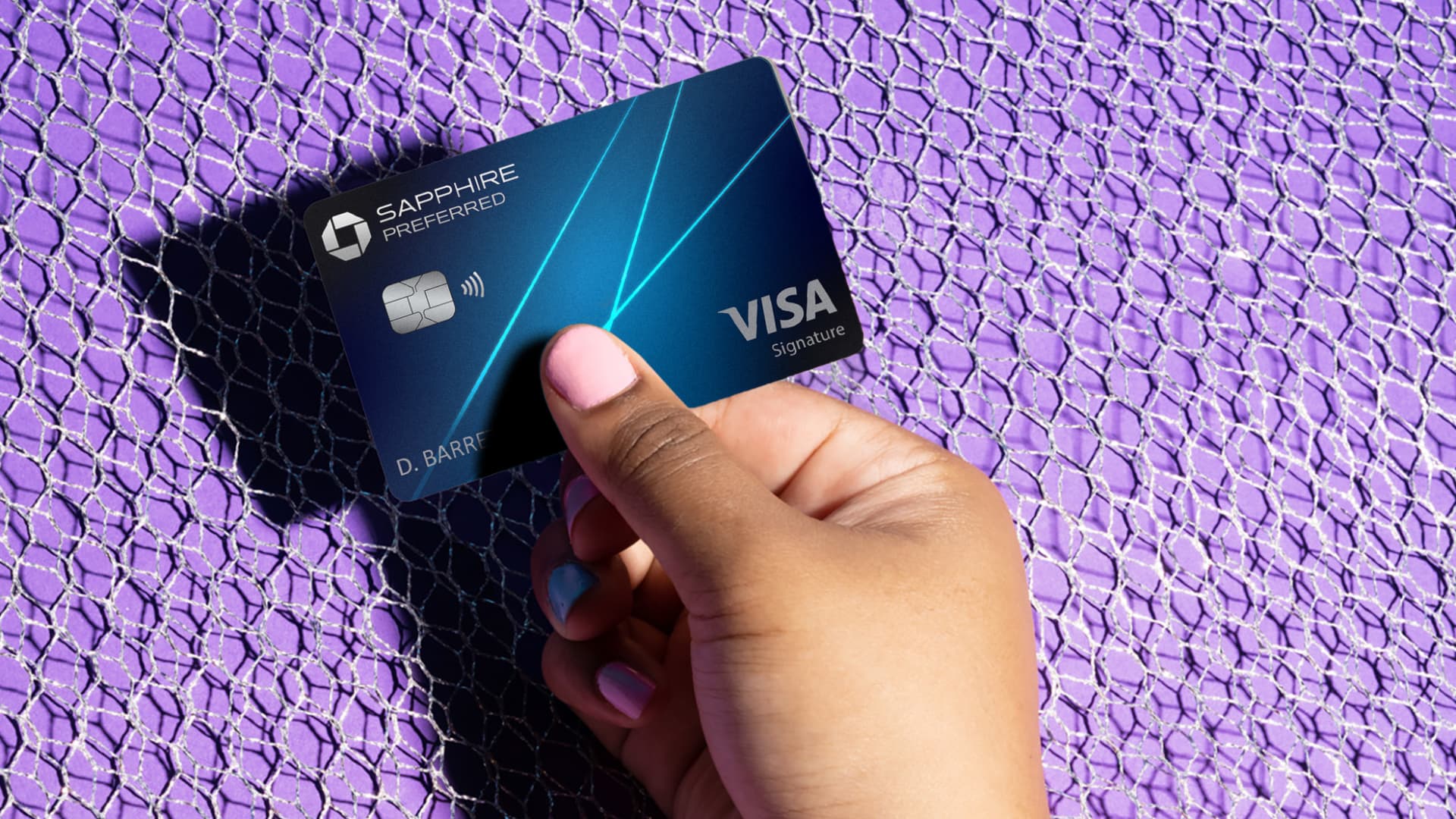
2. American Express Gold Card
The Amex Gold Card offers 4x points on dining and groceries, making it a top card for food purchases. Benefits include:
- 60,000 point welcome bonus
- 4x points at restaurants and US supermarkets
- $120 dining credit
- $100 airline fee credit
- No foreign transaction fees
With a $250 annual fee, this card is best for those who frequently dine out and buy groceries. The credits help offset the fee and provide additional statement savings.

3. Chase Freedom Unlimited
As one of the best no annual fee cash back cards, the Chase Freedom Unlimited offers solid earning rates and redemption options. Benefits include:
- $200 bonus after spending $500 in first 3 months
- 1.5% cash back on all purchases
- 5% cash back on travel booked through Chase
- No annual fee
With no annual fee, this is a great card for daily spending and maximizing cash back earnings. Points can be transferred to Chase travel partners when paired with a premium Chase card.
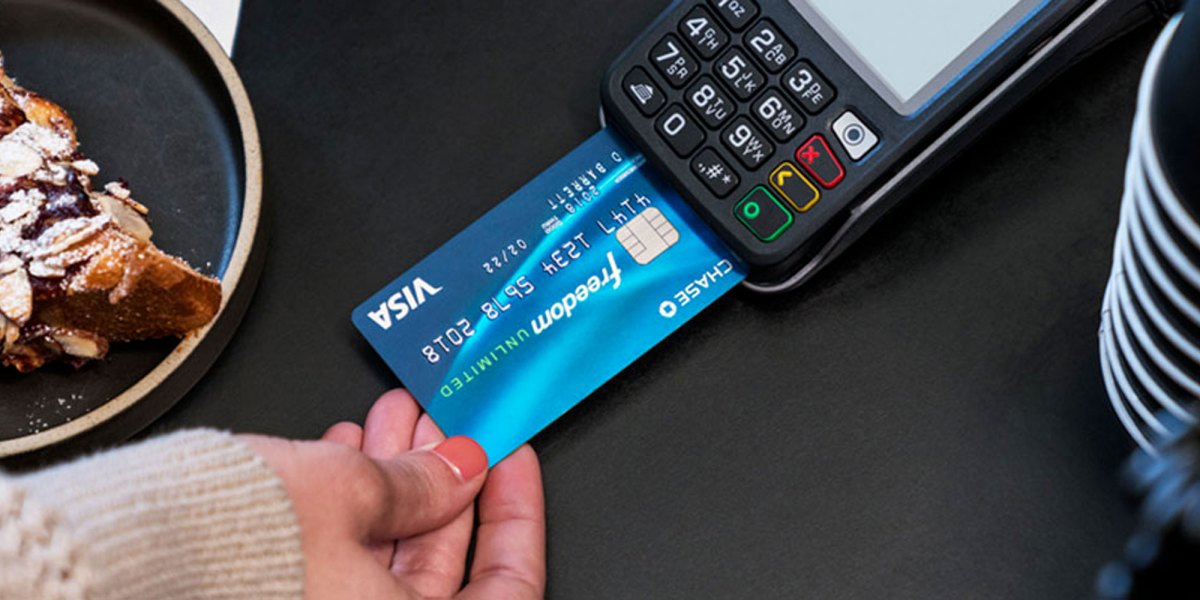
4. Capital One Venture X
The Capital One Venture X is one of the top travel rewards cards with premium benefits. Highlights include:
- 75,000 mile welcome bonus
- 2x miles on all purchases
- $300 annual statement credit for travel
- Complimentary airport lounge access
- Redeem miles for travel statement credits
Despite a hefty $395 annual fee, the statement credits and lounge access help offset the cost. With flexible redemption and strong bonus earning, this is one of the best premium travel cards.
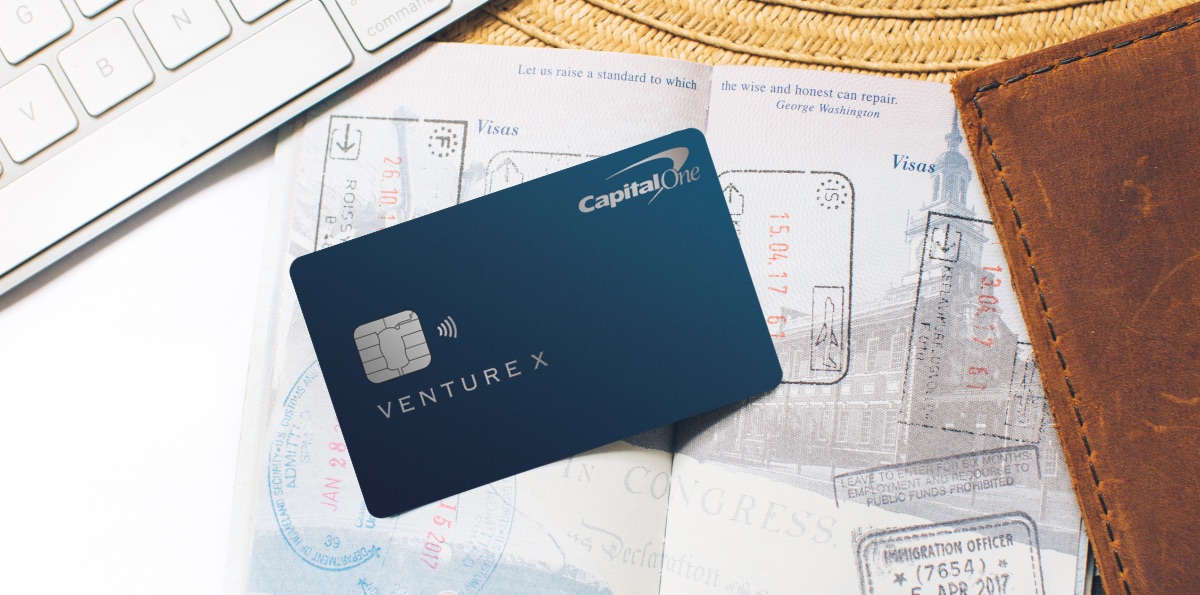
5. Citi Custom Cash Card
The Citi Custom Cash Card offers a unique 5% cash back bonus category that you choose each billing cycle. Key features include:
- $200 sign up bonus after $750 in spending
- 5% cash back in top eligible spend category
- 1% cash back on other purchases
- No annual fee
This provides flexibility to earn bonus rewards in the categories where you spend the most each month. With no annual fee, the Citi Custom Cash Card is extremely valuable for maximizing category bonuses.
6. Bank of America® Cash Rewards credit card
With customizable 3% and 2% bonus categories, the Bank of America Cash Rewards card provides options for your spending habits. Benefits include:
- $200 online cash rewards bonus
- 3% cash back in category of your choice
- 2% cash back at grocery stores and wholesale clubs
- 1% cash back on other purchases
- No annual fee
This card allows you to pick from gas, online shopping, dining, travel, drug stores, or home improvement/furnishings for your 3% category each month. This flexibility combined with solid earning rates makes it a top no annual fee cash back card.
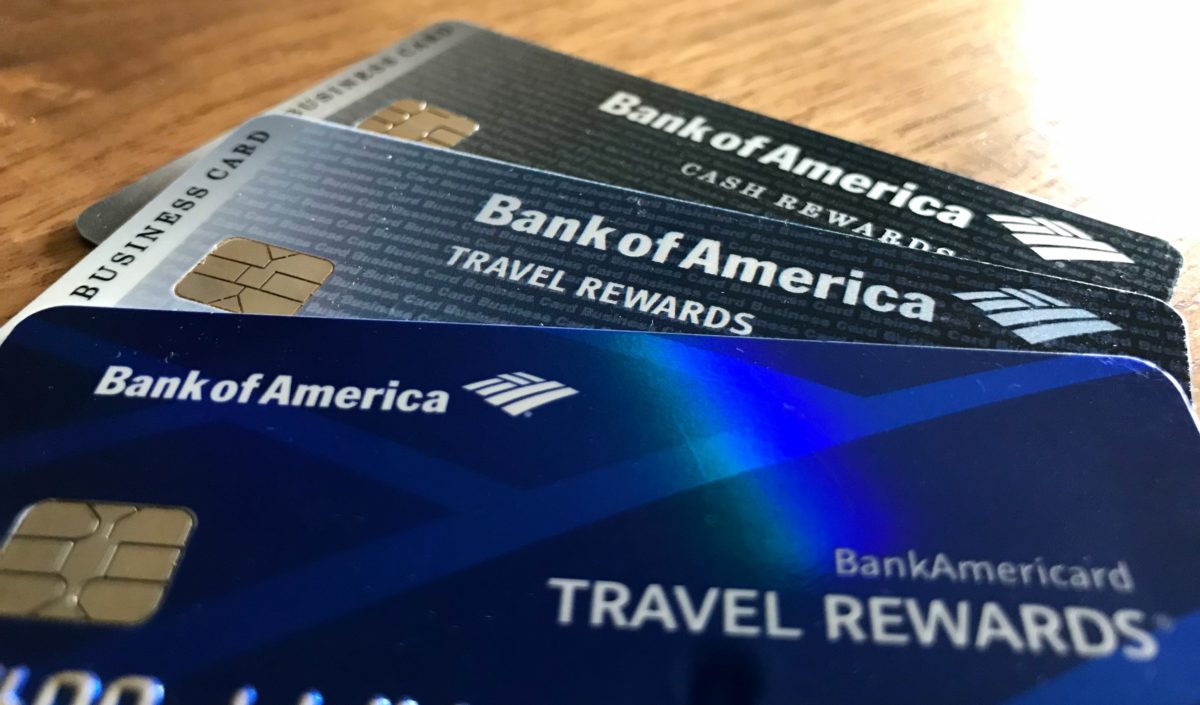
7. Wells Fargo Active Cash Card
The Wells Fargo Active Cash Card has one of the best flat-rate cash back rates available with no annual fee. Benefits include:
- $200 cash rewards bonus
- Unlimited 2% cash rewards on purchases
- Cell phone protection
- Intro 0% APR offer
- No annual fee
Earning an unlimited 2% back on all purchases with no bonus category restrictions is valuable for those who want simple cash back without an annual fee. You can redeem rewards for cash back as a statement credit, deposit, or mobile wallet credit.

8. U.S. Bank Altitude Connect Visa Signature Card
The U.S. Bank Altitude Connect offers 4x points on travel and at gas stations, plus solid mobile wallet rewards. Benefits include:
- 50,000 point welcome bonus
- 4x points on travel and gas
- 2x points on grocery stores, grocery delivery, streaming services, and EV charging stations
- 1x point per $1 on other eligible purchases
- $15 monthly credit for mobile wallet purchases
There is a reasonable $95 annual fee for this card. With no foreign transaction fees and travel and mobile wallet perks, this card can maximize rewards for daily spending. The welcome bonus value is also among the best available.
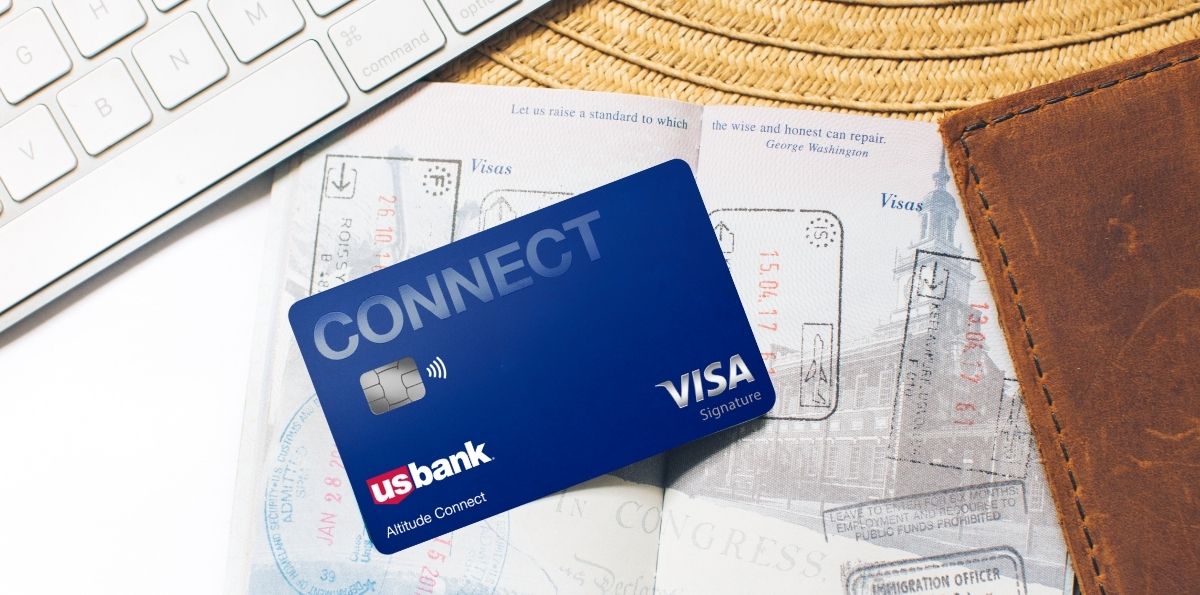
9. Blue Cash Preferred Card from American Express
With 6% cash back at US supermarkets, the Blue Cash Preferred Card from Amex is one of the top options for grocery shopping. Benefits include:
- $350 statement credit after $3,000 in purchases in the first 6 months
- 6% cash back at US supermarkets
- 6% cash back on select US streaming services
- 3% cash back on transit including taxis/rideshare, parking, tolls, trains, buses and more
- 1% cash back on other purchases
There is a $95 annual fee for this card, but the high earning rate on groceries can quickly offset it. This card also provides one of the best cash back rates for streaming services.

10. Citi Premier Card
With broad 3x bonus categories and a large welcome bonus, the Citi Premier Card is a top contender for everyday rewards. Benefits include:
- 80,000 point welcome bonus after $4,000 spend in 3 months
- 3x points on air travel, gas stations, restaurants, supermarkets, hotels, and entertainment
- 1x points per $1 spent on other purchases
- $100 annual hotel savings benefit
There is a $95 annual fee that is well worth it considering the strong welcome bonus and bonus earning potential with this card. The points can also be transferred to airline partners for added redemption value.
11. Chase Ink Business Cash Credit Card
With no annual fee, the Chase Ink Business Cash Credit Card is one of the best cards for small business rewards. Benefits include:
- $750 bonus cash back after $7,500 in purchases within 3 months of account opening
- 5% cash back on up to
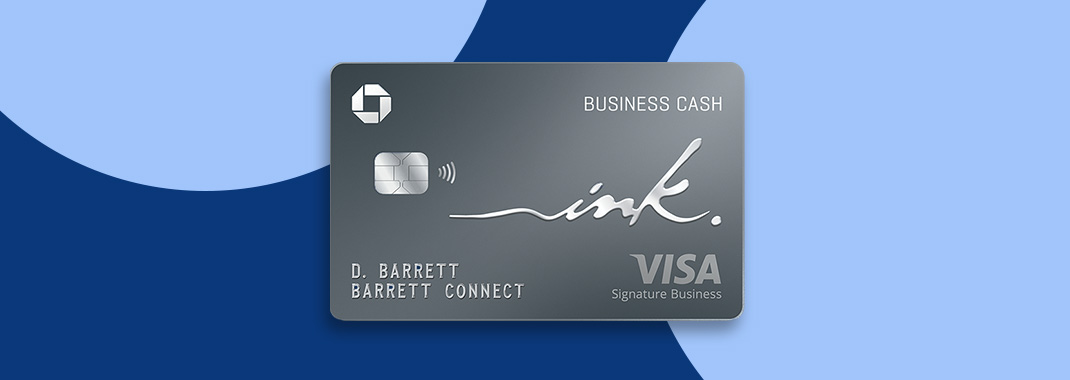
Business
The 10 Best Personal Loans of Year 2024

Best Personal Loans: Taking out a personal loan can be a great way to finance large purchases or consolidate high-interest debt. With interest rates still near historic lows in 2024, it’s an ideal time to take advantage of a low-rate personal loan. Here are the 10 best personal loans of 2024 based on interest rates, fees, loan amounts, terms, and borrower requirements.
1. LightStream – Best Personal Loans
LightStream offers outstanding rates with no fees and highly customizable loan options. Here are some of the key features:
- Interest rates from 3.49% to 19.99% APR with AutoPay discount
- Loan amounts from $5,000 to $100,000
- Terms from 24 to 144 months
- No application, origination, or prepayment fees
- Quick funding in as soon as 1 business day
LightStream has an easy online application and provides funds directly to your bank account. Loan eligibility is based primarily on creditworthiness rather than income. LightStream offers both secured and unsecured loan options. Overall, LightStream is our pick for best overall personal loan because of its low rates, minimal fees, and flexible loan options.
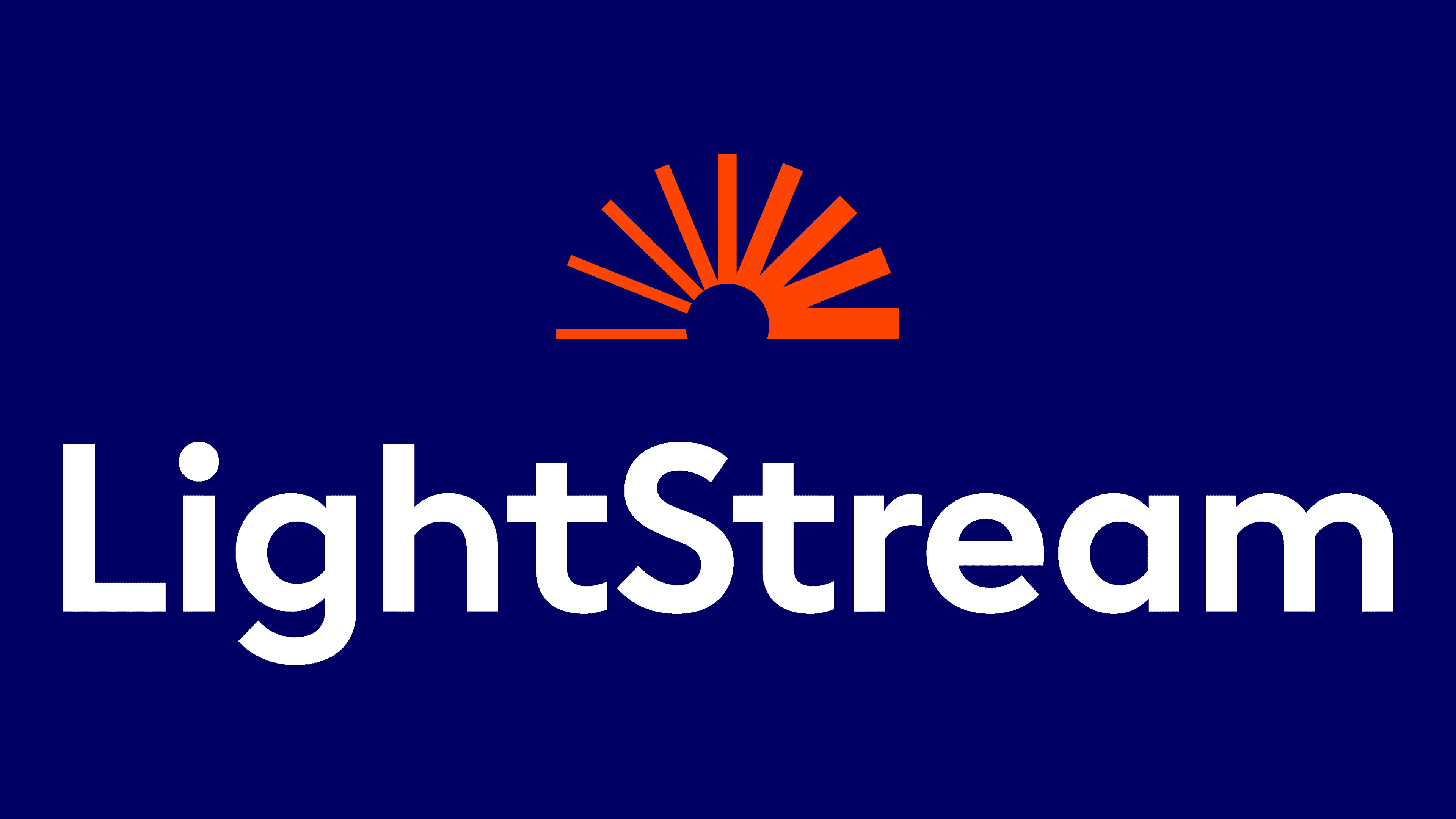
2. SoFi – Best for High Loan Amounts
SoFi offers personal loans up to $100,000 along with competitive interest rates and member benefits. Here’s an overview:
- Interest rates from 5.99% to 20.28% APR
- Loan amounts from $5,000 to $100,000
- Terms from 24 to 84 months
- No application or prepayment fees
- Unemployment protection and career coaching
SoFi personal loans don’t have any application or origination fees. Prequalifying online is easy with no impact to your credit score. SoFi members get access to career coaching, entrepreneur programs, and other unique benefits. SoFi is our top pick for high loan amounts thanks to loans up to $100K and great rates.
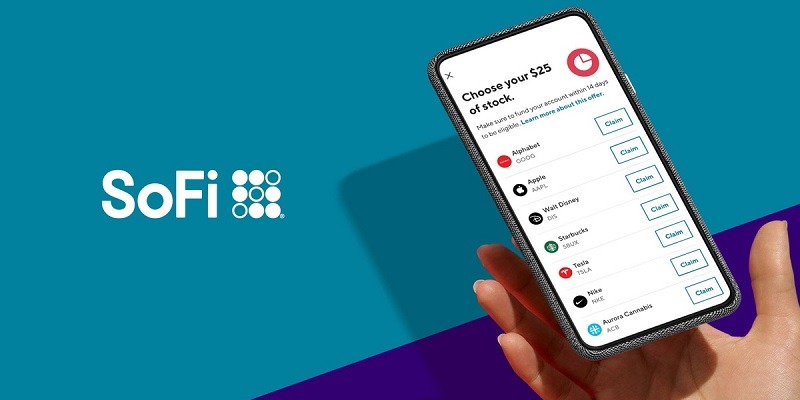
3. Upgrade – Best Credit Health Tools
Upgrade offers rewards programs and credit health monitoring along with competitive personal loan options. Here are the details:
- Interest rates from 5.94% to 35.97% APR
- Loan amounts from $1,000 to $50,000
- Terms from 24 to 84 months
- No application or origination fees
- Credit health tools to monitor and improve your score
Upgrade personal loans reward on-time payments with interest rate reductions over time. Free credit monitoring is also included. Upgrade is unique in providing credit health tools to help borrowers monitor and improve their credit scores. With competitive rates and strong rewards programs, Upgrade is our pick for best credit health tools.
4. Payoff – Best for Debt Consolidation
Payoff is designed specifically for debt consolidation loans. Benefits include:
- Interest rates from 5.99% to 24.99% APR
- Loan amounts from $5,000 to $40,000
- Terms from 24 to 60 months
- No application, origination, or prepayment fees
- Goal-based debt payoff tool
Payoff provides online tools that help optimize your debt payoff strategy. All borrowers complete a financial education course as part of qualifying for a loan. Payoff offers complimentary access to credit monitoring services as well. With its debt consolidation focus and payoff tools, Payoff is our pick for best personal loan for debt consolidation.
5. Marcus – Best Loan Term Flexibility
Marcus by Goldman Sachs offers outstanding flexibility in loan terms. Here are some of the key details:
- Interest rates from 6.99% to 19.99% APR
- Loan amounts from $3,500 to $40,000
- Terms from 36 to 72 months
- No application, origination, or prepayment fees
- Flexible terms from 3 to 6 years
Marcus offers personal loan terms from 36 to 72 months, while many lenders cap terms at 60 months. This added flexibility allows borrowers to reduce monthly payments by extending the length of the loan. Marcus also has no application, origination, or prepayment fees. With outstanding loan term flexibility, Marcus is our pick for best personal loans.
6. Best Egg – Best for Fair Credit
With its focus on fair credit borrowers, Best Egg offers an excellent option for those with scores in the mid 600s. Features include:
- Interest rates from 5.99% to 35.99% APR
- Loan amounts from $2,000 to $50,000
- Terms from 36 to 60 months
- No application or origination fees
- Minimum credit score of 640
Best Egg has a minimum credit score requirement of just 640. They can approve borrowers through their AI-powered underwriting system in minutes. While interest rates are higher for fair credit borrowers, Best Egg’s model provides fair lending for those with less than good credit. This makes them our pick for best personal loans for fair credit.
7. FreedomPlus – Best for Bad Credit
FreedomPlus offers loans specifically tailored for borrowers with bad credit or credit scores below 640. Here are the key features:
- Interest rates from 10.68% to 29.99% APR
- Loan amounts from $10,000 to $40,000
- Terms from 12 to 60 months
- No application, origination, or prepayment fees
- Minimum credit score of 600
FreedomPlus has a minimum credit score requirement of just 600, making it a great option for those with bad credit. While interest rates are higher, this allows borrowers with poor credit to access to personal loans they might not otherwise qualify for. FreedomPlus is our pick for best personal loans for bad credit.
8. LendingClub – Best Peer-to-Peer Loan Marketplace
As the largest peer-to-peer lender, LendingClub offers competitive fixed rates and the ability to shop hundreds of loan offers. Key features include:
- Interest rates from 6.95% to 35.89% APR
- Loan amounts from $1,000 to $40,000
- Terms from 36 to 60 months
- No application or origination fees
- Browse multiple loan offers from different investors
LendingClub gives borrowers access to personal loan offers from a variety of different investors who fund the loans. This allows you to browse multiple loan offers to find the rate and term that works best for you. LendingClub’s large marketplace makes them our pick for the best peer-to-peer personal loan company.
9. Avant – Best for Prequalifying
Avant provides easy prequalification and unsecured personal loans up to $35,000. Here are some of the key details:
- Interest rates from 9.95% to 35.99% APR
- Loan amounts from $2,000 to $35,000
- Terms from 24 to 60 months
- Administration fee from 1% to 4% of loan amount
- Prequalify with a soft credit pull
Avant’s prequalification allows you to check potential rates and likely approval odds before a hard inquiry. Those with fair credit can prequalify without impacting their credit score. With easy prequalification and mid-range loan amounts, Avant is our pick for best personal

 World7 months ago
World7 months agoKanye West’s release put on hold causes Nicki Minaj to postpone her album

 Sports7 months ago
Sports7 months ago2024: A Summer to Remember as Europe Hosts Crickets Biggest Event

 World7 months ago
World7 months agoAndre Braugher died: A Life Well-Lived on and off the Nine-Nine Set

 US7 months ago
US7 months agoMatthew Perry Toxicology Report: Cause of death revealed to be “acute effects of ketamine”

 US7 months ago
US7 months agoIs Netflix down? Netflix Plagued by Connection Issues, Frustrating Thousands of Users in the US and UK

 Sports7 months ago
Sports7 months agoUnion Saint-Gilloise vs Liverpool : Europa League Result Leaves Fans in Awe

 India7 months ago
India7 months agoIndia’s Supreme Court Validates Removal of Kashmir’s Special Status

 World7 months ago
World7 months agoNcuti Gatwa: Why the Doctor ‘felt like an alien’ growing up












